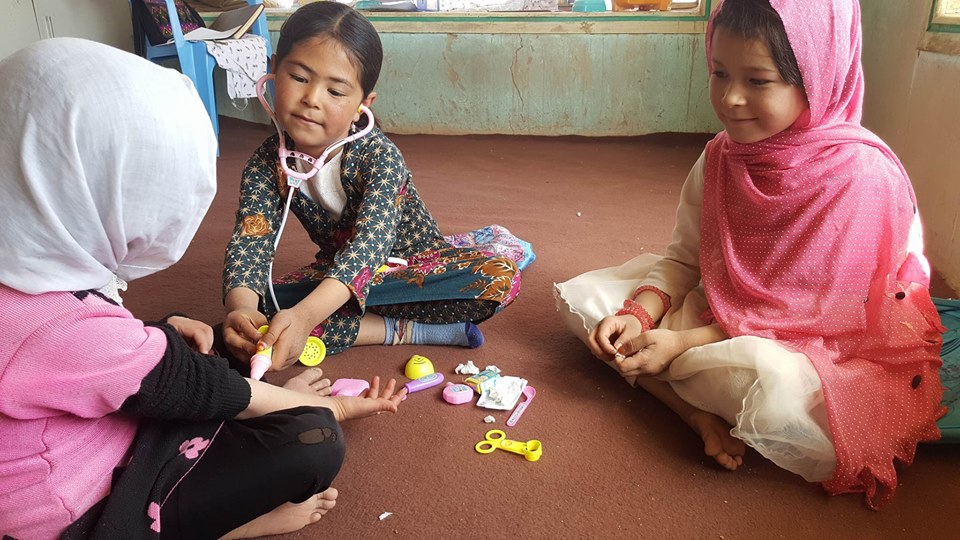Nai Qala contributes to the improvement of human rights in Afghanistan
The capacity of the Afghan State to deliver critical services such as education and health care and to respect, protect and fulfill human rights is limited. The remote rural areas have been traditionally neglected by successive central governments in Kabul and today those remote communities particularly feel the absence of a strong state response. Basic infrastructure and institutions such as schools and health clinics are lacking, undermining the state’s ability to ensure good health and educational standards. Schools and clinics, where they exist, are difficult to access for most people. Staff of such institutions often have little training and low motivation. Few trained staff agree to work in remote regions where living conditions can be harsh. Not surprisingly, many people have left the country to try to make better lives elsewhere and this constant rural exodus makes the situation worse for those who remain as it weakens the social fabric of these communities.
Women and girls are still deprived of basic human rights, facing multiple restrictions and discriminations, abuses and various forms of violence, while efforts to raise the status of women face continued opposition. Women’s roles and their potential, as contributors to social and economic development, are still overlooked.
Right to education
Education is a human right, enshrined in the Universal Declaration of Human Rights and the United Nations Convention on the Rights of the Child. Every girl and every boy should have the right to a quality education so that they can have more chances in life, including employment opportunities, better health and also to participate in the political process. A basic education is also important to ensure that all individuals are aware of their rights.
In Afghanistan, 28% of school-age children are out of school and only 18% of girls 15 and older are literate. Our work on the root causes of low or no attendance of children, in particular girls, to school remedies the absence of decent learning conditions such as absence of a proper school building, the low qualification of teachers, absence of hygiene facilities (especially for menstruated girls), and the absence of a boundary wall, while preventing at the same time drop out through motivation talks with parents and the community, offering pre-primary classes, and reducing the distance to school in remote rural regions.
Right to health
As for education, health is also a human right enshrined in the Universal Declaration of Human Rights, in the United Nations Convention on the Rights of the Child, as well as in the International Covenant on Economic, Social and Cultural Rights. The human right to health means that everyone has the right to the highest attainable standard of physical and mental health, which includes access to all medical services, sanitation, adequate food, decent housing, healthy working conditions, and a clean environment.
While 91 out of 1000 children still die before their 5thbirthday in Afghanistan, we improve health conditions by providing a health center (clinic) that positively impacts women and infant health, improves the vaccination coverage and provides basic health care to a population of >20’000.
Nai Qala teachers have received training on basic hygiene measures; they pass the message on to their students and the youngsters participating in the early childhood education classes learn why and how to wash their hands. Several gardening initiatives are promoted to enhance nutritional status of the entire family.
Empowering people to realize their rights
While the main goal of our teachers is to teach the children, we also want to seize the opportunity to help communities understand the concept of human rights, or why it is important to question old ideas and encourage girls’ education. We want the teachers to discuss issues such as education, health and equality with village elders and others. It takes time for people to accept new ideas, but they have shown a surprising interest so far.
Gender equality, enshrined in article I of the Universal Declaration of Human Rights, stands at the core of Nai Qala’s activities. Nai Qala’s vision is “aneducated, healthy and balanced society in which women and men lead social, cultural and economic changes in an inclusive manner that enables their children – boys and girls – to thrive”. Our path to realise our vision is inclusive, patiently convincing elders, fathers, men. We aim at inducing small changes in the society by developing the capacities, opportunities and resources of local communities so that men, women, boys and girls can participate equally in family life and decisions and expand their fields of opportunities. We promote the participation of women in society as equals with men in decision making on issues that concern them, such as the education of their children, health of all family members and family economic income, as well as the inclusion of the full community in collective decision making such as construction, use and maintenance of local schools and clinics.
Human rights are interdependent, indivisible and interrelated. This means that the violation of the right to health may impede the enjoyment of other human rights, such as the right to education or the right to work, and vice versa. Without education, one is less likely to find well-paid jobs, decent housing, to participate in the democratic process or to recognize the value of education for future generations. According to the World Bank, there is evidence that educated citizens care more about the environment, are more tolerant of those who are different and are more inclined to fight for gender equality. Through education initiatives and actions targeting health, supported by an inclusive approach, Nai Qala strives to reduce inequalities and promote human rights.

